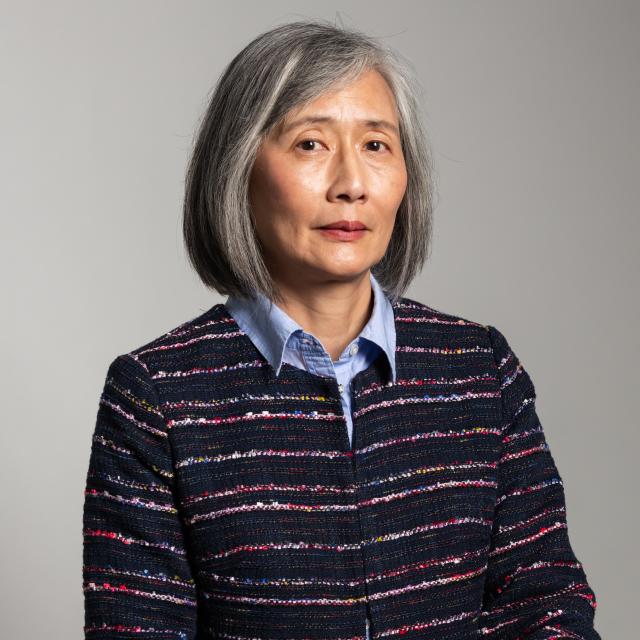In pragmatics, Professor Lee has been working on comparative analyses of Japanese and Korean grammar collaborating with Korean linguists. Also, in her work on heritage language education, she pays special attention to how the notion of “heritage language learner” is constructed, and how her findings can help young heritage speakers navigate in this globalizing world.


Kiri Lee
Professor of Japanese
PhD, Harvard University
Explore this Profile×
Research Areas
Additional Interests
- Japanese Pragmatics
- Heritage Language Education
Research Statement
Biography
Professor Lee is a native of Osaka, Japan. She came to the United States for her graduate study, and now lives in Easton, PA. with her family and pets.
Recent Publications
Books:
Constructing the Heritage Language Learner: Knowledge, Power, and New Subjectivities. (Co-authored with N. Doerr), Walter de Gruyter, Inc., Boston/Berlin, 2013.
Articles:
Lee, Kiri and Young-mee Yu Cho. 2023. "Grammaticalization in Progress: Differing Patterns of Korean and Japanese Plurality," Asian Languages & Linguistics 4.1, 48-75
Lee, Kiri. 2022. “Learning to Lead,” in Special Section Language and Pedagogy: “Our Challenges and Triumphs: Female Asian Faculty in Leadership Positions in U.S. Colleges and Universities,” Japanese Language & Literature Vol 56 No 1, 235-241.
Lee, Kiri and Neriko Doerr. 2019.「日本語学校における学習者のニーズの多様化」(“Heterogeneous needs of learners in Japanese heritage schools” ) 『親と子をつなぐ継承語教育–日本・外国にルーツを持つ子ども』(Heritage language education connecting generations : From the Japanese perspective). Edited by Kimi Kondo-Brown, Mitsuyo Sakamoto, and Tomomi Nishikawa, 151-163. Kuroshio Publisher, Tokyo, Japan.
Lee, Kiri, Young-mee Yu Cho, and Min-Young Park. 2018. “Unmarked Plurality and Specificity in Korean and Japanese Plural Nouns: A Preliminary Study.” International Perspectives on Translation, Education and Innovation in Japanese and Korean Societies. Edited by David G. Hebert, 121-132. Springer, Switzerland.
Lee, Kiri, and Young-mee Yu Cho. 2017. “Social Meanings of Honorific/Non-honorific Alternations in Korean and Japanese,” Korean Linguistics Vol 17 No 2, 207-242.
Teaching
Courses taught at Lehigh: Japanese Language (all levels); Introduction to Linguistics
